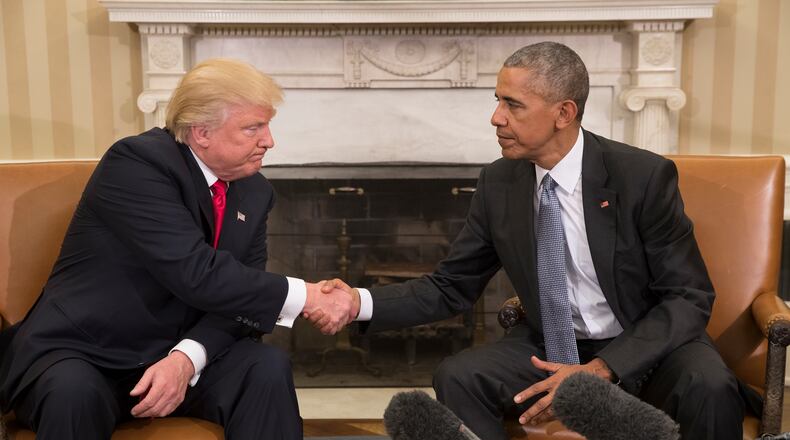I failed to bring your attention last week to this grim milestone (from CBS News ):
"While at Camp David, Mr. Trump, with the stroke of his presidential pen, increased the statutory debt last Friday by approximately $318 billion, according to the Treasury Department. Before the bill's completion, the U.S. debt was sitting around $19.84 trillion.
"The legislation allowed the Treasury Department to start borrowing again immediately after several months of using 'extraordinary measures' to avoid a financial default. The bill passed last Thursday 80-17 in the Senate and in the House 316-90 on Friday. Around $15 billion in emergency funding for Hurricane Harvey recovery efforts was attached to the borrowing measure.
"The $318 billion increase raised the U.S. national debt to $20.16 trillion by Friday. Since Mr. Trump's inauguration, the debt has increased about $215 billion from around $19.94 trillion."
The news is pegged to the debt-ceiling increase, because that's what technically allowed the red ink to grow to this level, but as always it's inaccurate to blame the debt-ceiling increase for this development. The debt was essentially incurred the moment Congress authorized spending above what it collects in taxes.
And this trajectory isn't changing anytime soon. We need tax reform , but we also need to modernize entitlements to fit the way our country has changed -- fewer workers for each retiree, longer lives, and so on. Fully one-quarter of the debt, more than $5 trillion , is owed by one government agency to another (for example, the Treasury owing money it spent out of the Social Security trust funds). That money is going to cost someone: taxpayers, beneficiaries, or both. And much of future debt growth will be driven by entitlements: Counting future revenues against future liabilities (such as Social Security and Medicare obligations that have been promised but which aren't yet due), federal unfunded liabilities actually total some $66 trillion . That's more than three times larger than the U.S. economy.
Yet we have President Trump opposing entitlement changes because they are unpopular; congressional Republicans backing down in fear of going against Trump; and congressional Democrats actually making matters worse by proposing vast expansions of entitlements ("Medicare for all") without any semblance of a plan to pay for it.
Just last week Sen. Bernie Sanders was back at it, proposing a universal health-care plan that would cost an estimated $32 trillion over 10 years -- above what the federal government already spends on health care -- while bringing in (at most) $16 trillion in new revenues over 10 years. In other words, whereas the federal debt is projected to grow by $1.1 trillion per year in the near future, Sanders' plan would make it more like $2.7 trillion per year. If he were to be elected president and implement his plan, the debt would more than double before his theoretical second term could end. If our current trajectory is like a slow national suicide, Sanders' plan would speed up the process considerably.
Either that, or Sanders could try to pay for the whole thing, which would require nearly doubling federal tax revenue from current levels and sending the economy into a depression.
(I would add a part here about the math for Trump's tax-reform plan, except that we don't know what the plan is. Also, unlike universal health care, there is a way to do tax-reform in a revenue-neutral way that still yields most of the benefits and doesn't simultaneously kill the economy.)
Worse, the inaction of the past few administrations and Congresses means the solution gets harder all the time. Changes that could have been made on a smaller scale if done earlier would now need to be bigger -- rendering them more unpopular and thus less likely to happen. Changes that could have been made only with respect to future beneficiaries will, the longer this goes on, become inevitable for those who are already dependent on the government for income and health care. In normal times, spending doesn't actually have to be reduced to eliminate the budget deficit and reduce rather than increase the debt; it just has to grow more slowly, as was done in the late 1990s. But Democrats have demonized any such slowdown as a "cut," and Republicans have lacked the spine to argue otherwise, make the changes and let Americans judge for themselves whether they're better or worse off.
Both parties have created this America, in which the fastest-growing portion of federal spending is what we pay in interest on our debt and voters believe there's an easy solution just waiting to be applied -- to someone else. "Tax the rich" ... "cut welfare spending on deadbeats" ... and you can no doubt name others.
And yet we seem not just determined but content to drive straight toward this cliff, and even to hit the accelerator along the way.
About the Author
The Latest
Featured



